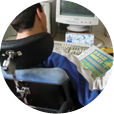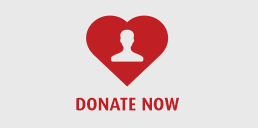T. +39 0541 909630
The Pope John XXIII Community aims to achieve full recognition of the dignity of people with disabilities, be these physical or mental and of their essential role in building a new humanity and a new society. This is because “the weakest members are the most necessary”, meaning that people with disabilities must not become mere recipients of charity but a resource, a life-enhancing gift. We maintain that it is vitally important for such recognition to apply right from conception bearing in mind that most children found or presumed to have disabilities before birth are aborted.
This gave rise to the Service for People with Disabilities.
Aims
- Support and educate families and entities within the Community that are in contact with disability in order to ensure that the spirit of welcoming is lived to the full and that is ever evolving into full recognition of the dignity, abilities and individual qualities of each person welcomed in.
- Culture: this service, working with the many family homes and cooperatives that welcome in people with disabilities, continues to bear witness to and promote a new culture capable of assigning everyone an essential role in a society that has been profoundly renewed.
- Politics: affirming the rights of disabled people, giving them the opportunity to live in their own or a replacement family, to go to school, work and receive adequate health care, where necessary, needs that all too often do not find a response in the way society is currently organised. The service addresses these issues both by taking charge of situations they encounter and by offering their own contribution in institutional settings of all kinds in which decisions are taken on these issues.
- Spirituality: going deeper into spirituality, the Catechism and the mission of people with disabilities within the Church and the world, taking the initiative with training and awareness-raising measures aimed at public institutions, both local and national.
Figures for the Service for People with Disabilities
(source APG23 2013 Annual Report)
 |
|
Latest news



